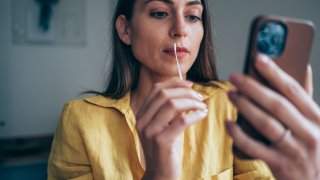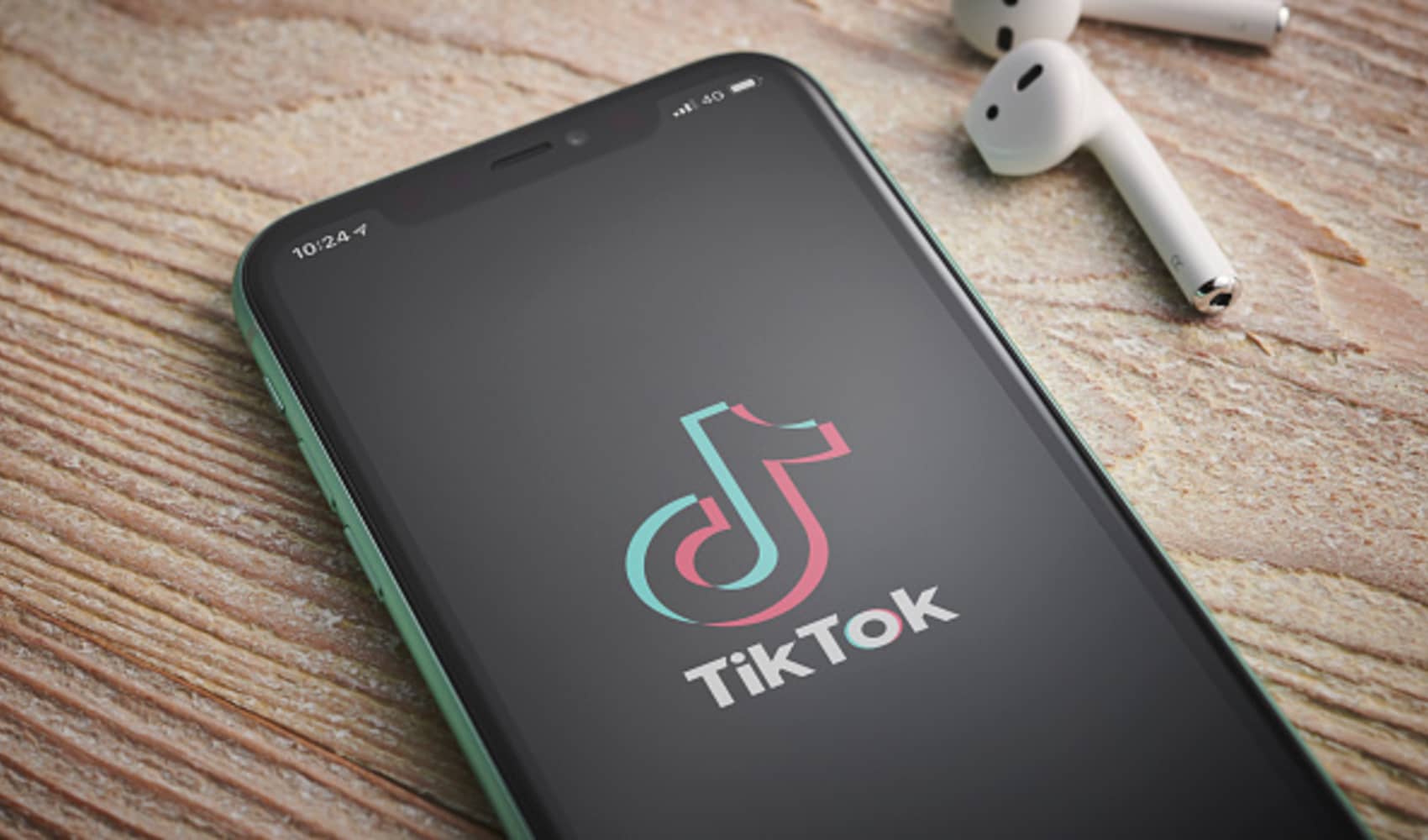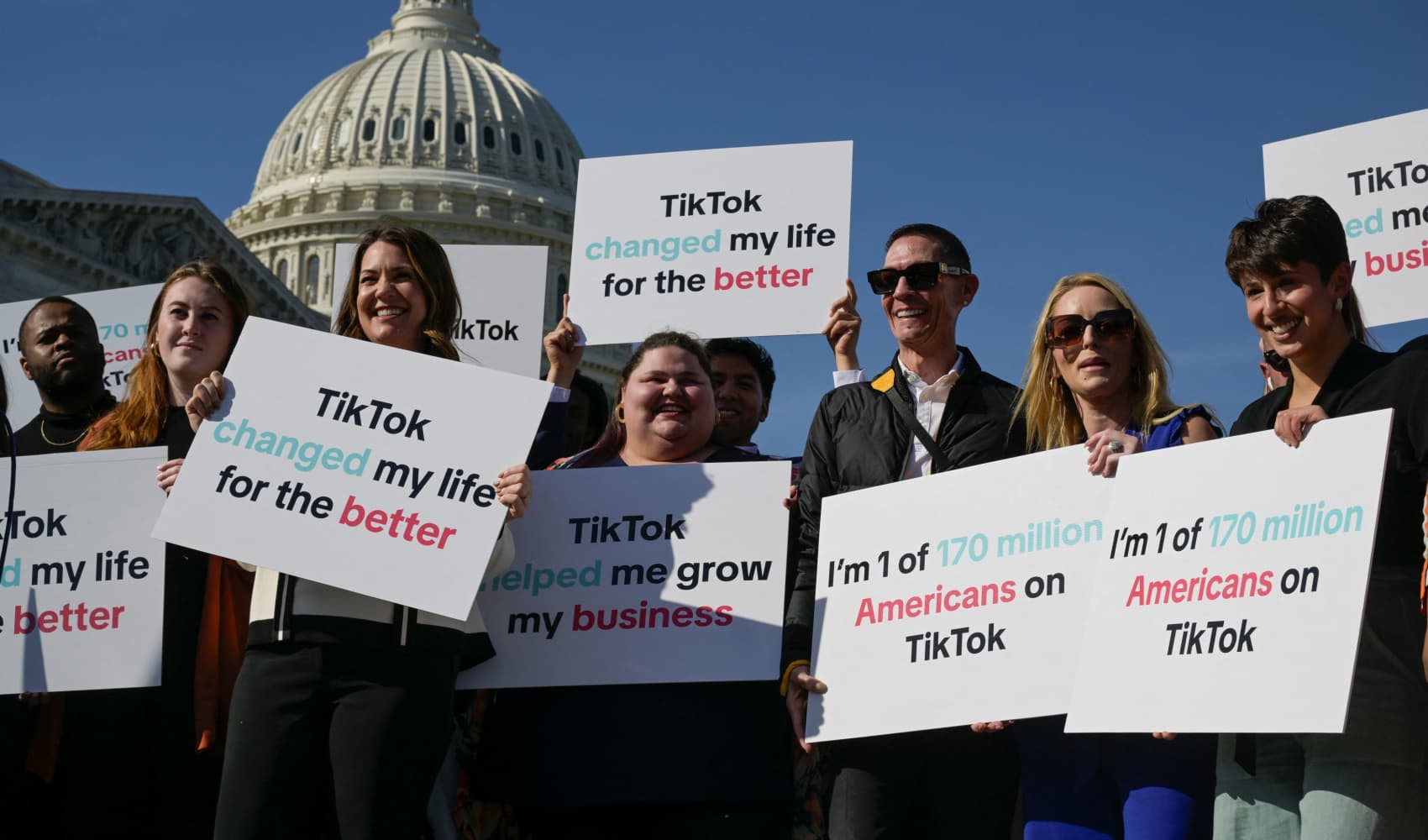
Want a handful of free at-home Covid tests? The Biden administration has a new website, covidtests.gov, where you can order them.
The website, which officially launched on Wednesday after a soft launch on Tuesday afternoon, allows each U.S. household to order four rapid antigen Covid-19 tests. Orders are expected to ship within seven to 12 days, according to the website.
For plenty of Americans, the testing kits can't come soon enough. Demand for at-home tests has surged amid the omicron variant's record-setting pace of infections and hospitalizations.
But at-home rapid tests aren't perfect, leading many to ask: How accurate are they, and when exactly should I use them? This guide can help:
Get a weekly recap of the latest San Francisco Bay Area housing news. Sign up for NBC Bay Area’s Housing Deconstructed newsletter.
How accurate are at-home rapid antigen tests?
At-home tests detect small viral proteins called antigens. They require users to rub a nasal swab inside their nostrils a few times on each side, and then expose the swab to a few drops of chemicals. Results typically take about 15 minutes.
According to the Centers for Disease Control and Prevention, at-home antigen tests like BinaxNow are roughly 85% accurate at detecting positive cases. That means at-home tests miss roughly 15% of positive cases, which can sound like a high figure, especially when millions of people get tested each day.
Money Report
But rapid tests aren't far behind the accuracy levels of polymerase chain reaction (PCR) tests, which are "considered to be the gold standard" in Covid testing, says Gigi Kwik Gronvall, a senior scholar at the Johns Hopkins Center for Health Security.
PCR tests detect genetic material or fragments from specific organisms or viruses, such as Covid-19. They can tell if you're currently infected, or if virus fragments are hanging around in your system after you're no longer infected. The downside is that they take time: Results can only be gathered in a laboratory setting, meaning even the quickest turnarounds can still take at least 24 to 48 hours.
So while at-home tests aren't 100% effective, they still have their place. Their convenience particularly makes them a key part of the "national strategy for reducing the spread of this virus," says Dr. James Crawford, senior vice president of Laboratory Services at Northwell Health and professor at the Feinstein Institutes for Medical Research.
At-home tests may also be significantly more accurate in kids: According to a preprint study led by Johns Hopkins researchers, published earlier this month, rapid antigen tests and PCR tests have similar accuracy levels for children. The study is awaiting peer review.
When should you take an at-home test instead of a PCR test?
The short answer: If you think you're experiencing Covid symptoms, take a rapid antigen test. If you're asymptomatic, but concerned about potential exposure to the virus, take a PCR test.
"Rapid antigen tests are excellent tools to tell people if they are currently infectious and should isolate," Gronvall says.
If you have Covid, you'll be "the most contagious" when you're first experiencing symptoms, Gronvall says. That makes rapid tests much more likely to confirm or deny your infection: The more of a "viral load" you have, the more likely a rapid test is to catch it.
Crawford agrees: "[T]hat is when the 'viral load' is highest, and is what the tests were originally approved for by the FDA."
Gronvall's advice for first-time users of at-home tests: Watch a how-to video before getting started. "[T]he second time someone does it is super easy, but it's not something people usually do," she says. "So for the first time, it might be helpful to watch a video."
If your rapid test comes back negative despite Covid-like symptoms, you might have a false negative result, the CDC says. The agency recommends isolating "away from others" and contacting your health care provider for more clarity. You can consider getting a PCR test as a backup, too.
Rapid antigen tests aren't as sensitive for people who are asymptomatic, Crawford says. That makes PCR tests more useful if you've been exposed to Covid but still feel fine, or if you simply want to be screened for ease of mind.
"There is a higher chance of an at-home test being negative in an infected asymptomatic person, when compared with a laboratory-based PCR test," Crawford says.
In addition to the Biden administration's free at-home Covid tests, multiple at-home rapid tests are available for purchase without a prescription, including Abbott's BinaxNow tests, the Ellume Covid-19 Home Test and the Quidel QuickVue At-Home Covid-19 Test.
Prices range from about $14 to $35, according to online websites.
Update: This story has been updated to include CDC guidance on testing negative for Covid despite experiencing symptoms.
Don't miss:
Omicron could burn through the U.S. — and potentially hasten the Covid pandemic's end, says expert






